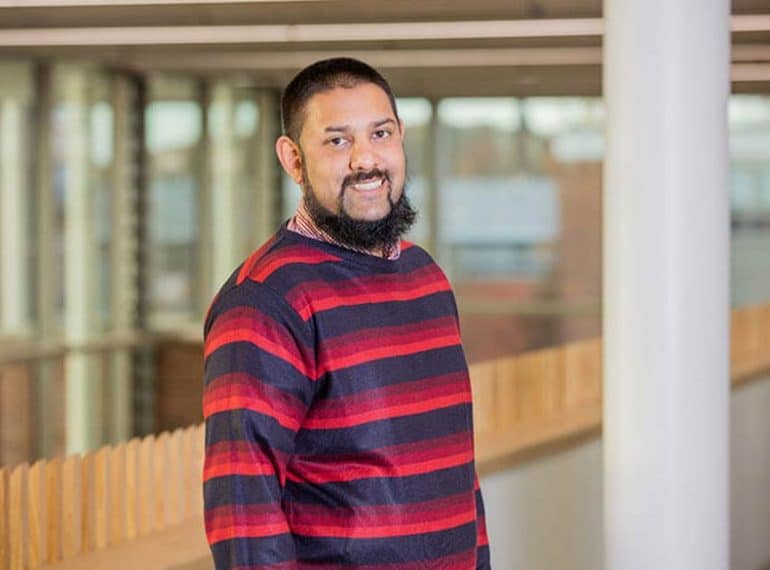
Old Elizabethan Dr Mustafa Sarkar has some sound expert advice for anyone feeling down after the end of the World Cup – and especially after the England defeats in the semi-final and in Saturday’s third-place play-off.
Mustafa (OE 1997–2004) has a global reputation as a sports psychologist and has won a string of awards for his work.
A Senior Lecturer at Nottingham Trent University, he was interviewed by the Nottingham Post about how to cope with the negative feelings surrounding England’s departure following the growing sense of elation that followed them as they reached the semi-finals.
Such feelings, he told the newspaper, are entirely natural: “Often the short-term impact will be having a negative mood with feelings of disappointment and frustration. There has been a loss – of momentum, of identity, and of unity – the country coming together.
“Some people might be able to see that England over-performed compared to expectations, while others might see it as a lost opportunity because of the way the draw opened up. There’s an element of personality in this, in terms of levels of optimism and pessimism and how people view situations generally.
“The negative moods will probably be short-lived, in a similar way to how the players themselves will feel…After a period of time – maybe a week or two – there will be more objective reflection. And I think the majority of people will be optimistic about the future. There will be stages of denial and then acceptance, and then moving on and seeing the positives in the situation.”
 Mustafa had particular advice for those who fall into “thinking traps” and find themselves unable to stop dwelling on England’s missed opportunities – the scoring chances missed by Kane, whether Croatia’s semi-final equaliser should have been ruled out for a dangerously high foot, or Harry Maguire heading wide from a good position in Saturday’s match against Belgium.
Mustafa had particular advice for those who fall into “thinking traps” and find themselves unable to stop dwelling on England’s missed opportunities – the scoring chances missed by Kane, whether Croatia’s semi-final equaliser should have been ruled out for a dangerously high foot, or Harry Maguire heading wide from a good position in Saturday’s match against Belgium.
“For example,” he says, “if you think that ‘England are never going to be in this position again’, that’s quite an illogical thought. The team is quite young and there’s a good chance of them being in that situation in 2022.”
“Reflect back, and think of three or four positives that came out of the World Cup for England – both the team, and the nation. For example, reaching the first semi-final in 28 years, or winning a penalty shoot-out at the World Cup for the first time. This can help to reframe how you think about these potentially negative events.”

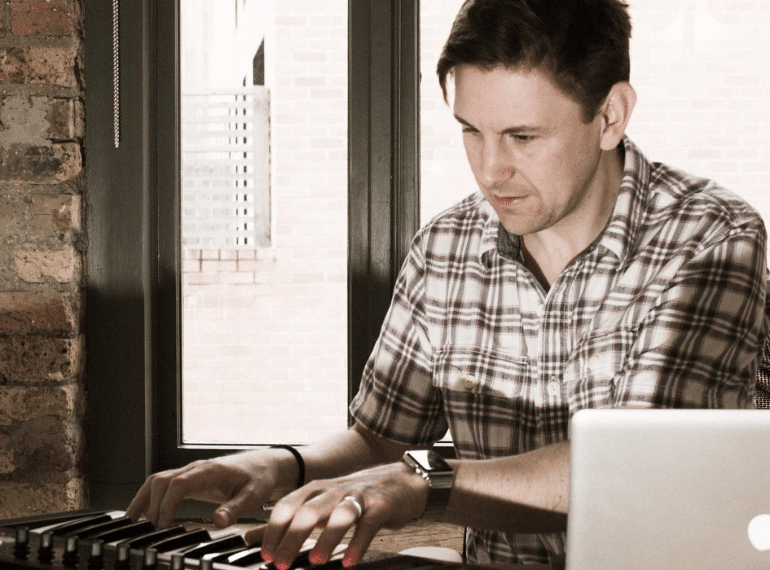
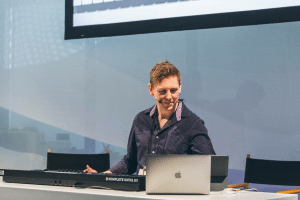 His work centres on Komplete Kontrol, the award-winning keyboards used by many of the world’s leading composers and producers including Stevie Wonder, Herbie Hancock, Jean-Michel Jarre, Hans Zimmer, Junkie XL, John Powell, Noah Shebib, Jacob Collier and Justin Kauflin.
His work centres on Komplete Kontrol, the award-winning keyboards used by many of the world’s leading composers and producers including Stevie Wonder, Herbie Hancock, Jean-Michel Jarre, Hans Zimmer, Junkie XL, John Powell, Noah Shebib, Jacob Collier and Justin Kauflin.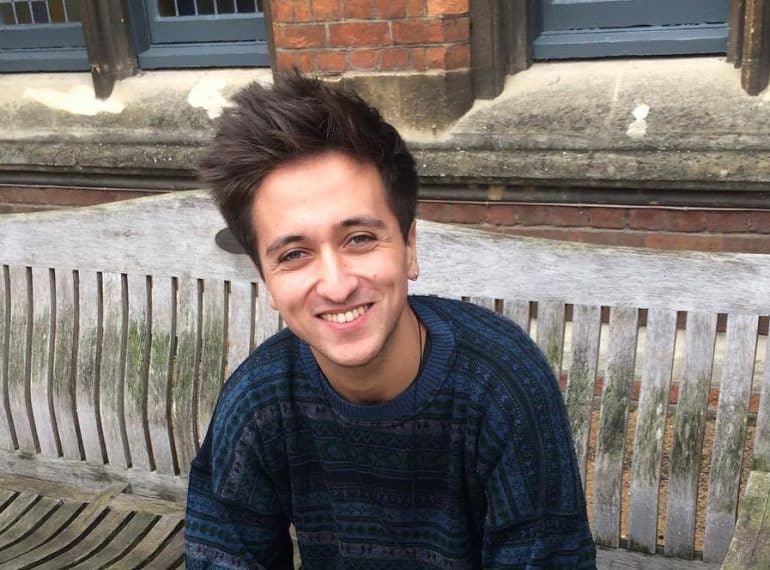
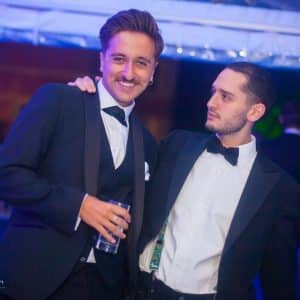 In addition to the OEs he holidays with, Surya meets up with others from his year group “both by chance at university, and on purpose for intermittent catch-ups at the pub. As a year, we have a pretty large group of people who seem to be fond of each other, which I’m thankful for. Even when at a new university or stage of life, when you find yourself having to make new friends, it’s always nice to be able to also catch up with well-known faces every once in a while.”
In addition to the OEs he holidays with, Surya meets up with others from his year group “both by chance at university, and on purpose for intermittent catch-ups at the pub. As a year, we have a pretty large group of people who seem to be fond of each other, which I’m thankful for. Even when at a new university or stage of life, when you find yourself having to make new friends, it’s always nice to be able to also catch up with well-known faces every once in a while.”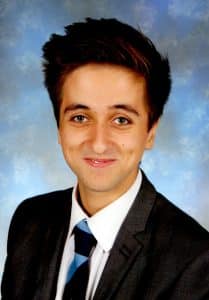 Surya returned to QE last year to talk to Year 11 about the virtues of studying English at university and to conduct mock university interviews. Looking back to his own School days, he recalls with affection certain characteristic sights and sounds: “The noise of the atrium at lunchtime, with people constantly banging on lockers as they play cards or scramble to finish off some work, sticks in my mind.
Surya returned to QE last year to talk to Year 11 about the virtues of studying English at university and to conduct mock university interviews. Looking back to his own School days, he recalls with affection certain characteristic sights and sounds: “The noise of the atrium at lunchtime, with people constantly banging on lockers as they play cards or scramble to finish off some work, sticks in my mind.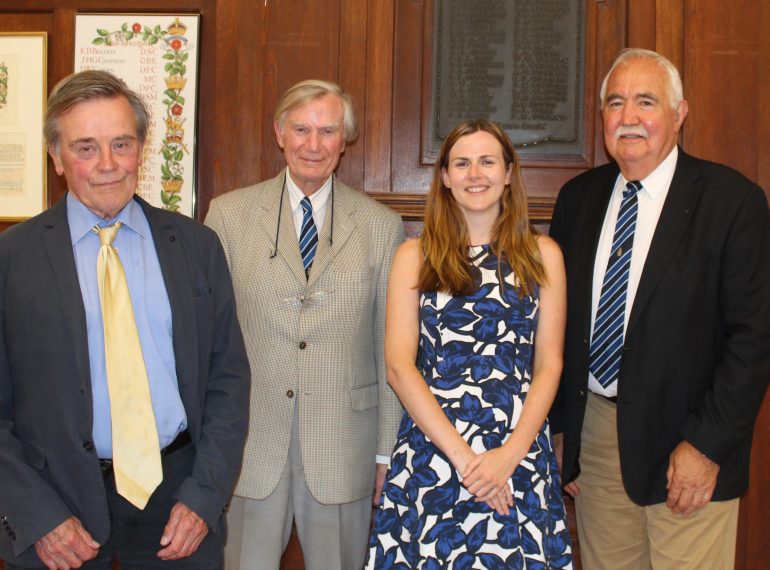
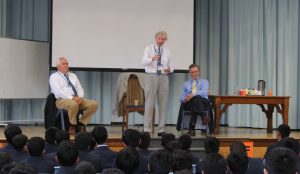 Ken Cooper (OE 1942–1950), David Farrer (1954–1961) and John Todd (1958–1964) were introduced by Head of History Helen MacGregor. There was an opportunity for the Year 7 boys to ask them questions, which typically focused largely on the disciplinary regime of the time!
Ken Cooper (OE 1942–1950), David Farrer (1954–1961) and John Todd (1958–1964) were introduced by Head of History Helen MacGregor. There was an opportunity for the Year 7 boys to ask them questions, which typically focused largely on the disciplinary regime of the time!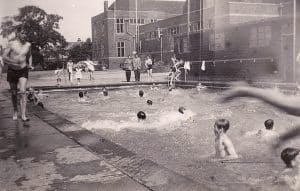 At first, all that lay behind the Main Building was the ‘Gun Field’. Later, an unheated, open-air swimming pool was built; boys were expected to swim in it in all weathers.
At first, all that lay behind the Main Building was the ‘Gun Field’. Later, an unheated, open-air swimming pool was built; boys were expected to swim in it in all weathers.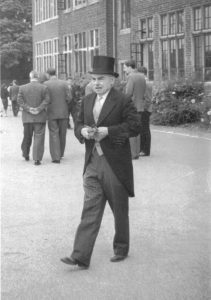 During his tenure, the strictness of the regime was seen in the use of corporal punishment. The cane was still very much in use and boys could, in the schoolboy slang of the time, be ‘whacked’ for a variety of misdemeanours. The three alumni reported, though, that they accepted this as being a normal part of school education and thought that there was usually good reason for the punishment! Mr Todd recalled going to be caned and being asked to select which of three different canes should be used. He remembered being concerned that it would be very obvious that he had hidden a workbook down the back of his trousers to cushion the blows, although this was, in fact, not commented upon by the master.
During his tenure, the strictness of the regime was seen in the use of corporal punishment. The cane was still very much in use and boys could, in the schoolboy slang of the time, be ‘whacked’ for a variety of misdemeanours. The three alumni reported, though, that they accepted this as being a normal part of school education and thought that there was usually good reason for the punishment! Mr Todd recalled going to be caned and being asked to select which of three different canes should be used. He remembered being concerned that it would be very obvious that he had hidden a workbook down the back of his trousers to cushion the blows, although this was, in fact, not commented upon by the master.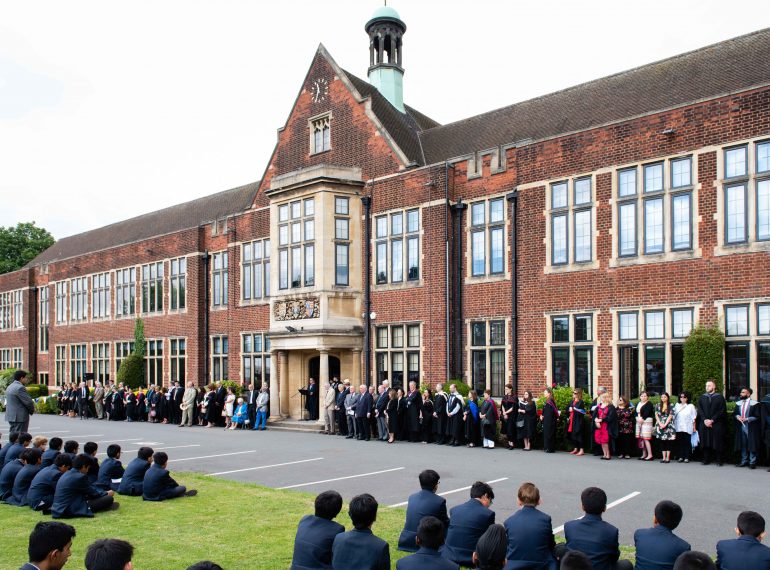
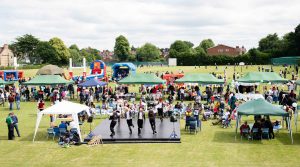 The day, a great highlight of the School’s summer calendar, included a morning church service and subsequent ceremonial proceedings, before culminating in the popular afternoon fete on Stapylton Field.
The day, a great highlight of the School’s summer calendar, included a morning church service and subsequent ceremonial proceedings, before culminating in the popular afternoon fete on Stapylton Field.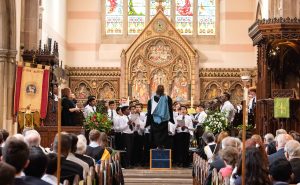 The day got off to a stirring start with the School Choir’s rendition of Handel’s coronation anthem, Zadok the Priest, performed as the introit in Chipping Barnet Parish Church.
The day got off to a stirring start with the School Choir’s rendition of Handel’s coronation anthem, Zadok the Priest, performed as the introit in Chipping Barnet Parish Church.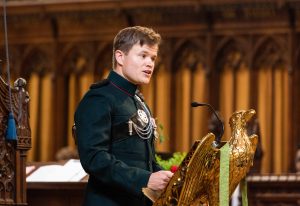 Major Russell told the congregation of boys, staff and VIPs of his experiences in 2010, when he and a fellow soldier were very seriously injured in Afghanistan, where he was serving with The Royal Gurkha Rifles. “We were on the operating table in Camp Bastion within 25 minutes of the blast, and back in Birmingham two days later.
Major Russell told the congregation of boys, staff and VIPs of his experiences in 2010, when he and a fellow soldier were very seriously injured in Afghanistan, where he was serving with The Royal Gurkha Rifles. “We were on the operating table in Camp Bastion within 25 minutes of the blast, and back in Birmingham two days later.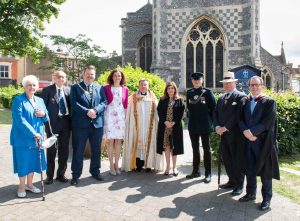 Major Russell added that he had been “touched beyond words” to receive a card from the QE staff as he lay immobilised in his hospital bed. “Not only was there a card, but a parcel was delivered containing a spanking new iPad: these had just come out in the UK and were seriously hot pieces of technology then.”
Major Russell added that he had been “touched beyond words” to receive a card from the QE staff as he lay immobilised in his hospital bed. “Not only was there a card, but a parcel was delivered containing a spanking new iPad: these had just come out in the UK and were seriously hot pieces of technology then.” After the service, the day continued, in accordance with cherished QE tradition, with the roll call and the reading of the School Chronicle in front of the main building.
After the service, the day continued, in accordance with cherished QE tradition, with the roll call and the reading of the School Chronicle in front of the main building.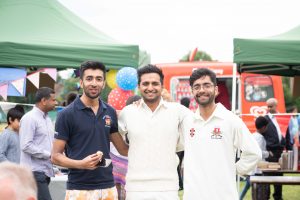 The afternoon also saw the annual Stanley Busby Memorial Cricket Match between old boys of the School and the current First XI. Played on the Third Field at the rear of the School, it was this year won by the pupils after a close encounter with a strong team of OEs.
The afternoon also saw the annual Stanley Busby Memorial Cricket Match between old boys of the School and the current First XI. Played on the Third Field at the rear of the School, it was this year won by the pupils after a close encounter with a strong team of OEs.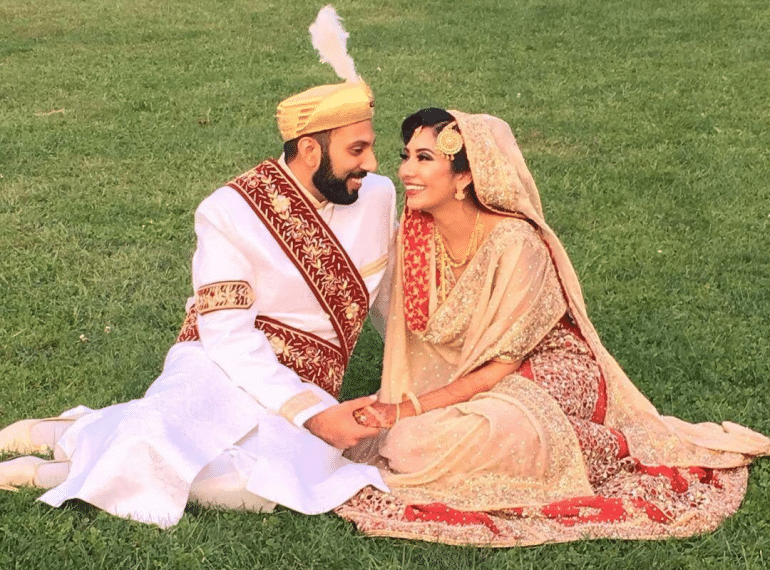
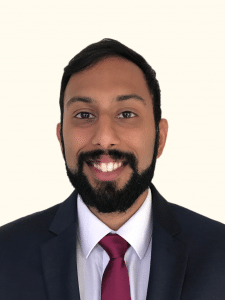 Adam has just started his Internal Medicine Residency at Baystate Medical Centre in Central Massachusetts, where he lives in Springfield with Saima. “It’s a role that doesn’t exactly exist in the UK,” he says. “I basically cover all non-surgical medical problems in the hospital for adults. I tell my non-medical family and friends that I do what JD and Dr Cox do on Scrubs – a programme I watched at lunchtimes on a very small screen in the Sixth Form Common Room at QE!”
Adam has just started his Internal Medicine Residency at Baystate Medical Centre in Central Massachusetts, where he lives in Springfield with Saima. “It’s a role that doesn’t exactly exist in the UK,” he says. “I basically cover all non-surgical medical problems in the hospital for adults. I tell my non-medical family and friends that I do what JD and Dr Cox do on Scrubs – a programme I watched at lunchtimes on a very small screen in the Sixth Form Common Room at QE!”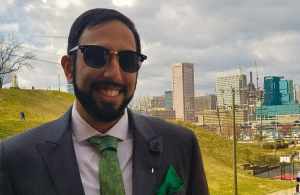 His professional experience of life in the USA has been overwhelmingly positive. “America is at a very unusual point. Most people’s views of the country are based on its domestic and international politics, which at the moment is very chaotic. Personally, my experience of the USA has been very different: it is an incredibly open country, where large institutions are desperate for the best employees they can find, regardless of where you are from. They highly regard international experience and yearn to learn about different perspectives.”
His professional experience of life in the USA has been overwhelmingly positive. “America is at a very unusual point. Most people’s views of the country are based on its domestic and international politics, which at the moment is very chaotic. Personally, my experience of the USA has been very different: it is an incredibly open country, where large institutions are desperate for the best employees they can find, regardless of where you are from. They highly regard international experience and yearn to learn about different perspectives.”